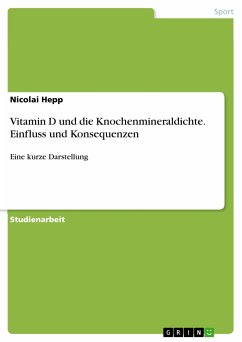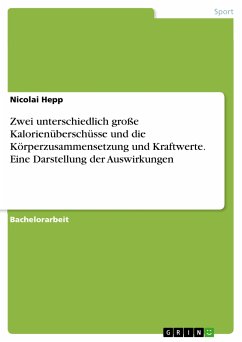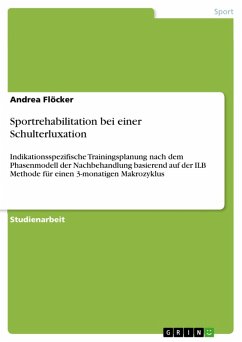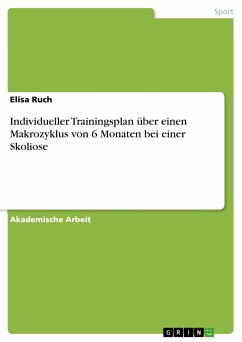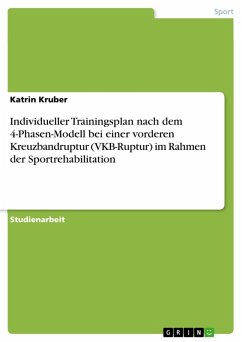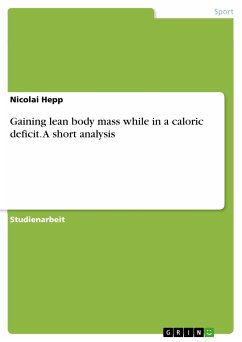
Gaining lean body mass while in a caloric deficit. A short analysis (eBook, PDF)

PAYBACK Punkte
0 °P sammeln!
Studienarbeit aus dem Jahr 2018 im Fachbereich Sport - Sportmedizin, Therapie, Ernährung, Note: 1,3, Deutsche Sporthochschule Köln (Institut für Biochemie), Sprache: Deutsch, Abstract: This paper deals with the question, whether it is possible to gain lean body mass while in a negative energy balance. The most important aspect in respect to weight management is energy balance. If the energy balance and thus the relationship between calorie uptake and expenditure is negative, weight-loss is induced. Is the energy balance and therefore the relationship between calorie uptake and expenditure p...
Studienarbeit aus dem Jahr 2018 im Fachbereich Sport - Sportmedizin, Therapie, Ernährung, Note: 1,3, Deutsche Sporthochschule Köln (Institut für Biochemie), Sprache: Deutsch, Abstract: This paper deals with the question, whether it is possible to gain lean body mass while in a negative energy balance. The most important aspect in respect to weight management is energy balance. If the energy balance and thus the relationship between calorie uptake and expenditure is negative, weight-loss is induced. Is the energy balance and therefore the relationship between calorie uptake and expenditure positive, overall weight-gain is induced. The energy the human body uses is commonly measured in calories. That's why energy balance can also be described as calorie balance. In the scientific literature it is recommended to maintain a moderate caloric surplus (positive energy balance) in order to build lean body mass efficiently. Alongside the favored caloric surplus a well-rounded strength training regimen should be incorporated. Although lean body mass is preferably gained in a caloric surplus, the question whether or not lean body mass can be gained while in a caloric deficit arises nevertheless.
Dieser Download kann aus rechtlichen Gründen nur mit Rechnungsadresse in A, B, BG, CY, CZ, D, DK, EW, E, FIN, F, GR, HR, H, IRL, I, LT, L, LR, M, NL, PL, P, R, S, SLO, SK ausgeliefert werden.









